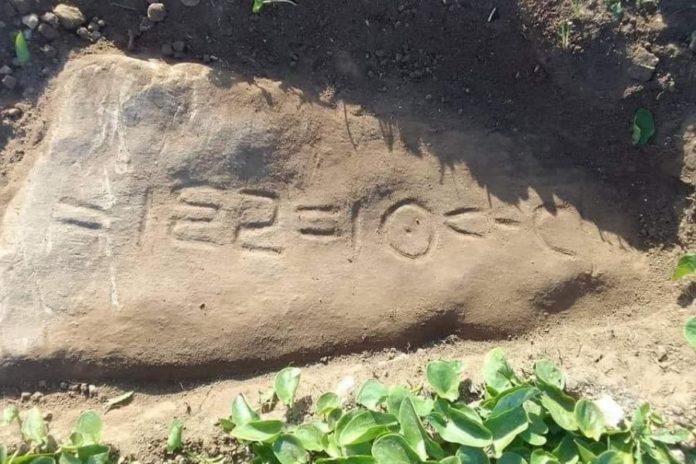According to a recent assessment from the Moroccan National Institute of Archaeology and Historical Sciences (INSAP), the tombstone with Tifinagh inscriptions that was found nearby El Jadida dates from before the advent of Islam. More research is still being done to further clarify the precise dating in the stone.
The institution emphasized in a statement that a commission of the El Jadida province government and the Regional Directorate of Cultural Heritage had been dispached for this mission.
Aboulkacem Chebri, an archaeologist and the director of the Center for Studies and Research on Moroccan-Lusitanian Heritage, told MAP that “because the team hasn’t found the discovery site, it’s been challenging for them to do their in-depth investigation.
Abdelaziz El-Khayari, an expert in ancient Amazigh languages who works for INSAP in North Africa, examined carefully the text for weeks to finally determine that the tombstone had funerary inscriptions written on it in the old Libyco-Amazigh alphabet but in a vertical line. “This is the Amazigh letters used in ancient times, giving rise to modern tifinagh.” and added that, “these type of discoveries are giving us an opportunity to revisit our history.”
The writing is similar to other inscriptions previously found in the areas of Ain Jamaa (southwest of Casablanca), Sidi El Arbi (suburb of Mohammedia), Nkhila (Settat region), and Souk Jamaa (Maaziz), according to the institute.
Aboulkacem Chebri stressed to MAP that the Libyan or Punic inscriptions, are mainly Amazigh, date back to a few centuries before Christ. « new discoveries from these centuries less known to historians and archaeologists. » added Mr Chebri.

















